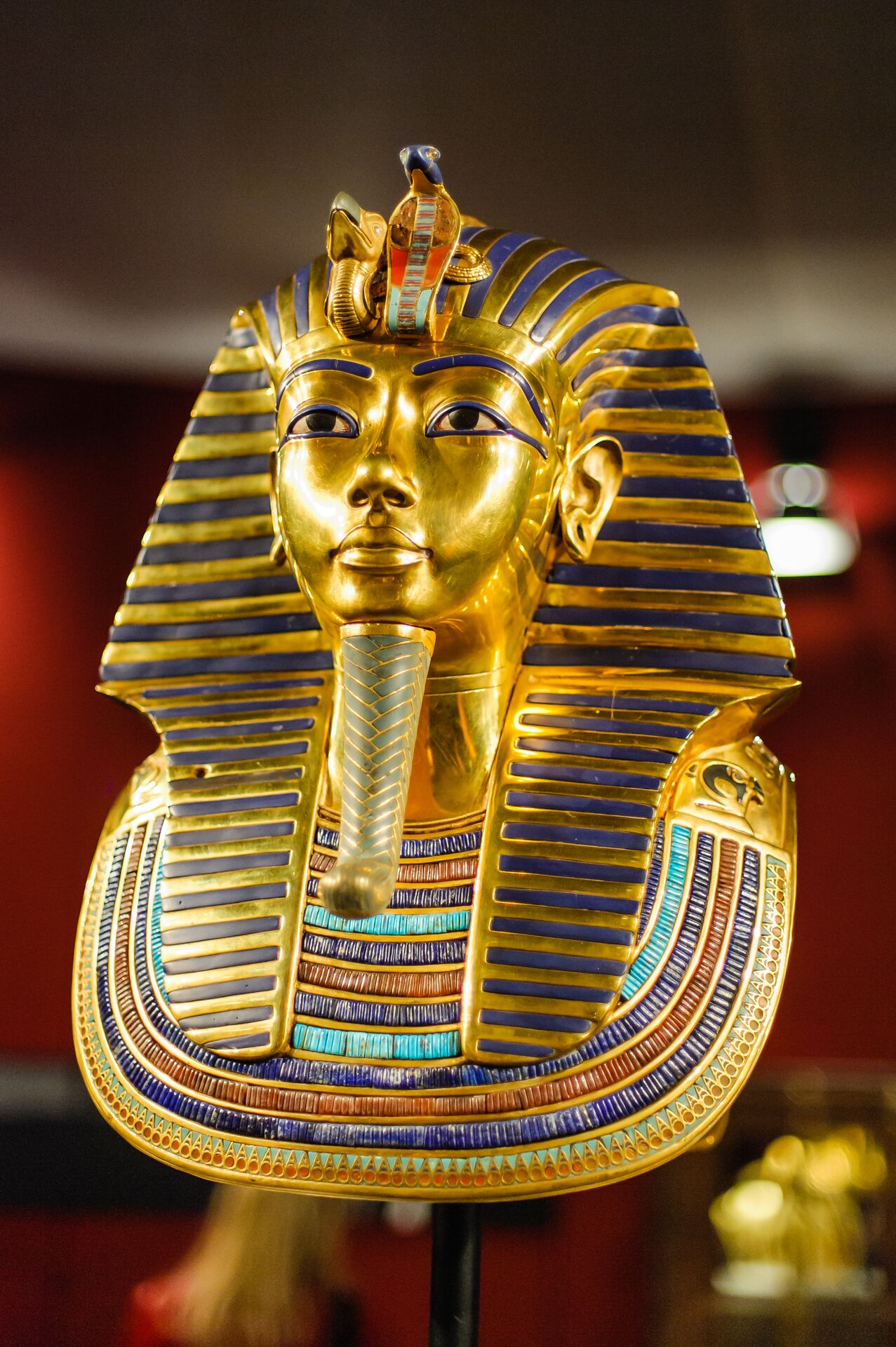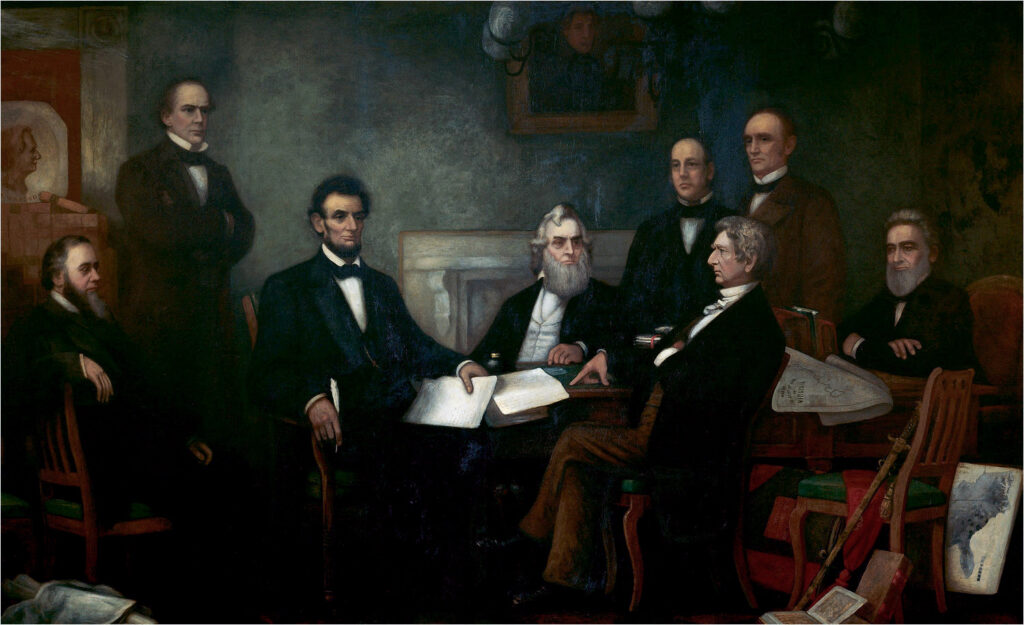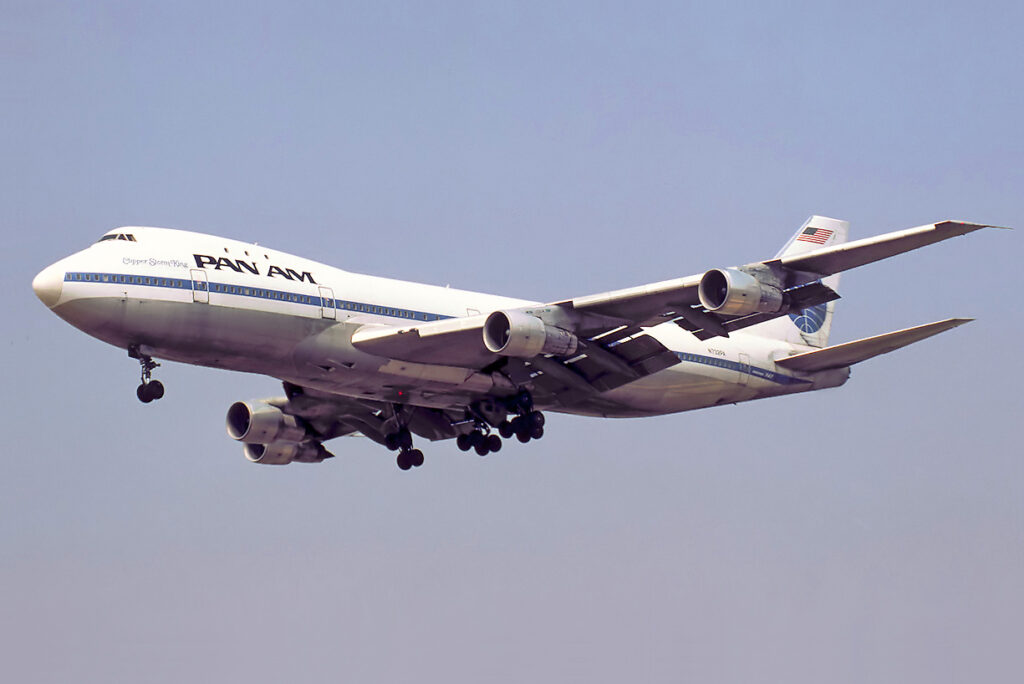A month of firsts: the January events that changed the world
Named after Janus, the Roman god of all beginnings, January brings a new year and a new start, and with that opportunities for breaking new ground – some more momentous than others. From watershed moments, to technological innovations and discoveries that changed the course of the future; these historic January events all had a profound effect on the world.
For those of us who may already be wavering in our loosely-held resolutions, hold firm – these events prove that January can be the catalyst for big change.
President Abraham Lincoln issues the Emancipation Proclamation – January 1, 1863
The Emancipation Proclamation, issued by President Abraham Lincoln on January 1, 1863, during the American Civil War, declared all enslaved people in Confederate-held territory to be free. Although its immediate impact was limited, it marked a crucial step toward the abolition of slavery and reshaped the war’s moral and political dynamics.
Delve into the history of the USA’s southern states on: Country Roads of the Deep South
You may also be interested to read: Poignant history comes to life before your eyes at the National Civil Rights Museum
The discovery of gold in El Dorado County sparks the California Gold Rush – January 24, 1848
January 24, 1848, marked a pivotal moment in American history when James W. Marshall unearthed gold at Sutter’s Mill in Coloma, California. This discovery sparked the California Gold Rush, a frenzied migration of prospectors, known as ’49ers, seeking fortune. The rush resulted in a population boom, transforming California’s economy and society. This famous January event significantly impacted the nation’s westward expansion, contributing to California’s statehood in 1850 and leaving an enduring imprint on the region’s history and identity.
See the golden state for yourself on: Best of California
Time zones are adopted by 25 nations – January 1, 1885
The adoption of time zones and standard time was a transformative global development involving 25 nations. Coordinated by the International Meridian Conference, this initiative aimed to synchronize timekeeping worldwide, enhancing communication and transportation efficiency. Sir Sandford Fleming’s proposal of dividing the world into 24 time zones, each one hour apart, revolutionized time standards. This event laid the foundation for the contemporary global time system, facilitating international coordination and shaping modern temporal practices. One of the January events that changed the world, the new standard time was adopted on new year’s day in 1885.
You may also enjoy reading: Making time: in conversation with one of Germany’s artisan cuckoo clock makers

The tomb of Tutankhamun is discovered in the Valley of the Kings – January 3, 1922
The discovery of King Tutankhamun’s tomb in 1922 by archaeologist Howard Carter was a watershed moment in Egyptology. This intact burial site provided unprecedented insights into ancient Egyptian culture, art, and funeral practices. The wealth of artifacts, including the iconic golden mask, illuminated the opulence of Tutankhamun’s reign and sparked a global fascination with Egypt’s rich history. The meticulous documentation of the tomb’s contents allowed scholars to reconstruct the life of a pharaoh, offering a time capsule from the New Kingdom period.
Discover the archeological riches of Egypt on Wonders of Egypt
Read more: 100 years on: The fascinating story behind the discovery of King Tut’s Tomb
Astronomer Edwin Hubble announces the discovery of galaxies outside the Milky Way – January 1, 1925
Up until the mid-1920s, the prevailing scientific belief was that the Milky Way constituted the entirety of the universe. It was also thought that the universe was static and unalterable. However, two groundbreaking January events and revelations, disclosed in January 1925 and January 1929 by astronomer Edwin Hubble, revolutionized our cosmic understanding. Hubble’s findings demonstrated, firstly, that the universe far surpassed its earlier estimated size and, secondly, that it undergoes continuous expansion, challenging prior notions and significantly advancing our comprehension of the cosmos.
You may also be interested to learn: The fascinating history of Peru’s rise as an astronomical superpower
John Logie Baird demonstrates the first television system in London – January 27, 1926
Scottish engineer and inventor John Logie Baird gave the world’s first demonstration of a working television in Soho, London in January 1926. This january event then launched a revolution in communication and entertainment. Baird based his television on the work of Paul Nipkow, a German scientist who patented his ideas for a complete television system in 1884. The idea underwent refinement by multiple inventors, with Baird ultimately achieving the milestone of producing clear and distinguishable images, marking a significant advancement in television technology.
Discover more secrets of London and Britain with our UK and Ireland tours
Boeing’s first 747 Jumbo Jet completes its inaugural transatlantic passenger flight – January 22, 1970
When it launched in 1970 the Jumbo Jet was trailblazing. Carrying more than twice as many passengers as Boeing’s next largest plane, it was more fuel-efficient which reduced the cost per seat, opening up the world to jet travel. The epitome of glamour in the skies, first class guests were treated to linen napkins and tablecloths, china plates and crystal vases with real flowers. Outlasting predictions that it would be superseded by supersonic flight, the 747 ruled the skies for more than half a century. After 1,574 aircraft built, and 53 years of service, the last jumbo jet was delivered to its new owner in February 2023.
Bookmark for later: Insight investigates: how the future of air travel is shaping up
Steve Jobs debuts the Apple iPhone, putting the internet in everyone’s pockets – January 9, 2007
Seamlessly integrating communication, computing and multimedia in a handheld device, the iPhone has revolutionized the world. One of the most influential recent January events, it was unveiled by the Apple CEO at a convention in San Fransisco in 2007. Its touch interface, App Store and sleek design transformed the mobile phone industry, setting new standards for its competitors. The iPhone’s impact extended beyond just the technology – influencing social dynamics, commerce and culture. It catalyzed the rise of mobile apps, altered business models, and fostered a connected global society, fundamentally reshaping how people live, work and interact.
You may also enjoy: Revealed: where our global travel experts want to visit in 2024
Why not make 2024 your year of firsts and visit a new country, enjoy a new experience or treat yourself to a new suitcase and book your place on one of our worldwide premium tours.
Save up to $3,000* per couple on your first Premium Tour
Plus receive latest offers, travel inspiration, and discover how your travels will make a positive impact. Together, WE MAKE TRAVEL MATTER®. Subscribe NowLIKED THIS POST? SHARE WITH YOUR COMMUNITY





